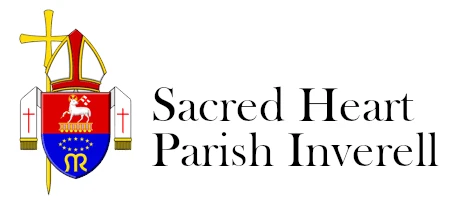31st Sunday in Ordinary Time (Year B) - 3 November
3rd November 2024
_with_quote.webp)
“Charity may be a very short word, but with its tremendous meaning of pure love, it sums up man’s entire relation to God and to his neighbour. As our Lord explained: ‘It is on charity that all the Law and the prophets depend.’” - St Aelred of Rievaulx
A reflection on today's Gospel by the Venerable Archbishop Fulton J Sheen:
"The two Commandments, love God and love neighbour, sum up the Ten Commandments which refer to love of God and love of neighbour. The first three Commandments are related to God; the last six Commandments are related to neighbour. Between the first three and the last six comes the Fourth, Honour thy father and thy mother. God put this in-between the two because the parents in the home take the place of God and obedience to parents is a very high form of justice related to neighbour and to God […] it is a bond between both God and neighbour. The justice we owe our parents is close to the justice we owe to God and related to the justice we owe our neighbour. After God, it was our parents who gave us life and this Fourth Commandment is the Commandment which provides for the future of our civilisation.
"In the other commandments, the Fifth to the Tenth, Our Blessed Lord said that we were to love our neighbour as ourselves. How do we love ourselves? We love ourselves very much. But there are also some things we do not like about ourselves. We hate ourselves when we are boorish, loud, and insulting to others, or make excessive demands upon our neighbour, or when we tell untruths that hurt our friends. You see we can love and hate ourselves.
"But loving is in the will, not the glands; it is in that part of our being which is subject to moral command, and is not a bodily reaction, like a wink. Hence, though we do not like certain medicines, we can put ourselves under the dictate of the will and take them. Liking is reciprocal, but love is not necessarily reciprocal. The friends we say we like, like us. But a mother can love a wayward son even though he does not return the affection. God can love us even when we spurn His graces.
"The Divine Command was not ‘like thy neighbour’ but ‘love thy neighbour,’ because it is hard to like certain kinds of people, such as those who step on our toes or make funny noises when they drink soup. But they can be loved, at the beginning, sometimes only by a good deed done to them. That is why the urgency to love thy neighbour is followed by the command: ‘Do good.’ At first it may be very difficult when our feelings are contrary to the command, such as telling a six year old boy: ‘Now, go out and kiss your Aunt Sophie.’ But doing good deeds which love demands makes the heart warmer. When there is no spontaneous love, love begins only as a duty. But as we learn to write by writing, to cook by cooking, to be courteous by practicing kindliness, so we learn to love by loving. The ‘I ought’ after a while passes to ‘I love.’
"This becomes clearer as we grasp the mystery behind ‘love thy neighbour as thyself.’ First of all, the neighbour is not the one next door, or the one who borrows sugar. The neighbour is the one in need, or maybe even an enemy. But how can he be loved as I love myself? Well, how do I love myself? Do I love myself always, or at certain moments? Do I love myself when I do something embarrassing, or when I steal, or when I hurt my neighbour’s reputation? On the other hand, do I not love myself when I visit the sick, send money to lepers in Asia, or find a job for the father of a family?
"When analysed, it becomes clear that I love myself when I do what is good, and I hate myself when I do what is wrong. There will be certain things in my neighbour which I love, and other things which I will not love, and they are the same things that were loved and hated in me.
"Applying it in a general way, I will love the sinner, but hate the sin; love the thief, but hate the robbery; love the Communists, but hate Communism. The Church, therefore, will always accept the heretic back into the treasury of her souls, but never the heresy into the treasury of her wisdom.
"It is easy to like and love those who love us. But when it comes to loving those who are not very likable, it takes the love of God to give the inspiration. Socialism is the love of neighbour without the love of God; it is the organisation of society on a technical, scientific basis, rather than charity. Love is not love unless it is directed to a person. Every human being ought to be loved in the unique mystery of his concrete personality. And when we come across many persons whom we do not ‘like,’ then we have to do what God does with us, who are not very lovable; He puts His love in us, and thus finds us very lovable."
(Your Life is Worth Living & The Power of Love)
Act of Love Prayer
O my God, I love You above all things, with my whole heart and soul, because You are all good and worthy of all my love.
I love my neighbor as myself for the love of You.
I forgive all who have injured me and I ask pardon of all whom I have injured. Amen. 🙏💐💖


